3 Common Corrugated Metal Pipe Problems And How To Fix Them
Corrugated metal pipes (CMPs) are some of the most commonly used materials for underground stormwater infrastructure. They go largely unnoticed, but are necessary to support the daily functions of our lives by properly moving water to avoid issues like water ponding, standing water on roadways, and localized flooding.
CMPs are used for various underground infrastructure projects such as culverts, stormwater detention/retention systems, storm sewers, small bridge replacements, aeration pipes, material conduits, and more.
CMPs can require frequent maintenance and repairs if they aren’t given adequate protection through the use of things like structural polymeric linings. Keep reading to learn about CMPs, 3 common issues they face, and how to fix them!
WHAT IS A CORRUGATED METAL PIPE?
A corrugated metal pipe (CMP) is a pipe—used for culverts and other underground infrastructure—that has a distinct set of parallel grooves and ridges.
As mentioned, they’re most commonly used for drainage culverts, storm sewers, material conduits, and other underground stormwater conveyance infrastructure pieces.
CMPs are commonly manufactured out of aluminum and steel, with different metallic coatings and alloys designed for different applications.
CORRUGATED METAL PIPE MATERIALS:
ALUMINUM ALLOY
Aluminum alloy CMPs are designed to resist the effects of corrosion and abrasion underground. The surface of the core is coated with a higher-grade aluminum alloy.
ALUMINIZED STEEL
Aluminized steel CMPs are manufactured by hot-dipping steel CMPs in commercially pure aluminum. These pipes can be effective at combating corrosion, in particular for culverts and drainage systems that involve acidic water.
GALVANIZED STEEL
Galvanized steel pipes are manufactured using a process called—you guessed it—galvanizing. Galvanizing involves applying a zinc coating to the pipe, thus protecting the base layer of steel from corrosion. Typically less effective than aluminized steel, the zinc helps protect from corrosion by acting as a barrier between water and the steel, reducing the effects of rusting and deterioration for the short term.
ASPHALT-COATED GALVANIZED STEEL
Asphalt-coated galvanized steel pipes are similar to galvanized steel pipes, but they’re coated on the interior and exterior with asphalt to delay corrosion and deterioration for a longer period. The asphalt, in combination with the zinc coating, provides additional abrasion resistance and helps to prevent water, debris, and abrasive run-off from reaching the base layer of steel.
POLYMER-COATED STEEL
Polymeric coatings and structural linings are emerging as great options in the industry to help CMPs stay sealed and strong. Polymeric coatings protect against abrasion from acids, salts, alkalis, and other materials that threaten CMPS in culverts and sewers.
COMMON CORRUGATED METAL PIPE PROBLEMS:
#1. OPEN JOINTS
Corrugated metal pipe joints are the areas/pieces that connect different adjacent sections of pipe. These areas can be a source of problems if they are opened due to misalignment. In these scenarios, backfill material can erode into the pipe, causing structural deterioration and eventually failure if left untreated.
To fix open joints, a process called joint sealing is carried out. It’s as simple as it sounds—the joint is sealed off to prevent unwanted material from entering. Polymeric linings are great for joint sealing, providing structural rigidity against soil intrusion and hydrostatic pressure
#2. VOIDS
Voids are unwanted gaps/spaces between the CMP and the soil. They’re addressed by using polyurethane grouting to fill the void and using polymeric linings to seal/strengthen the CMP.
#3. DETERIORATED INVERTS
The invert of a corrugated metal pipe is the lowest point within the pipe that water flows across.
Since this is where the water makes the most contact with the pipe, it’s especially susceptible to abrasion during peak stormwater events and corrosion over time if left unprotected. Deteriorated CMP inverts are likely the most common and frustrating corrugated metal pipe problems that underground infrastructure professionals face. If the pipe doesn’t have a long-lasting, abrasion-resistant corrosive protective agent like a polymeric lining, it can rust through.
Once the invert rusts through, other serious problems can occur like voids or even total structural failure.
HOW ARE THESE PROBLEMS FIXED?
Hengshui Yitong Pipe Industry Co.,Ltd. is professional corrugated culvert pipes manufacturer, was founded in 1998, 600 employees. After 24 years of growth, Hengshui Yitong Pipe Industry Co.,Ltd. became the most comprehensive leading corrugated culvert pipes manufacturer. We have more than 30 patents, and are the member unit joined to formulate the state standard,.
Our main products include 4 types culvert pipes and irregular-shaped pipes, annual capacity is 500,000 meters, the company obtained ISO9000 quality and ISO 14000 certificates, we can produce American and European standard products according to the customers' requirements. As a leading company in corrugated culverts pipes manufacturing, we focus on providing professional service and prompt lead time, producing quality products at competitive price.
CONCLUSION
Yitong corrugated metal pipe can be designed according to the Site conditions, such as Geography, hydrology, meteorology, etc. and we can supply economic and practical corrugated metal pipe products with corrugation, wall thickness, diameter, if you need, pls feel free to contact us!
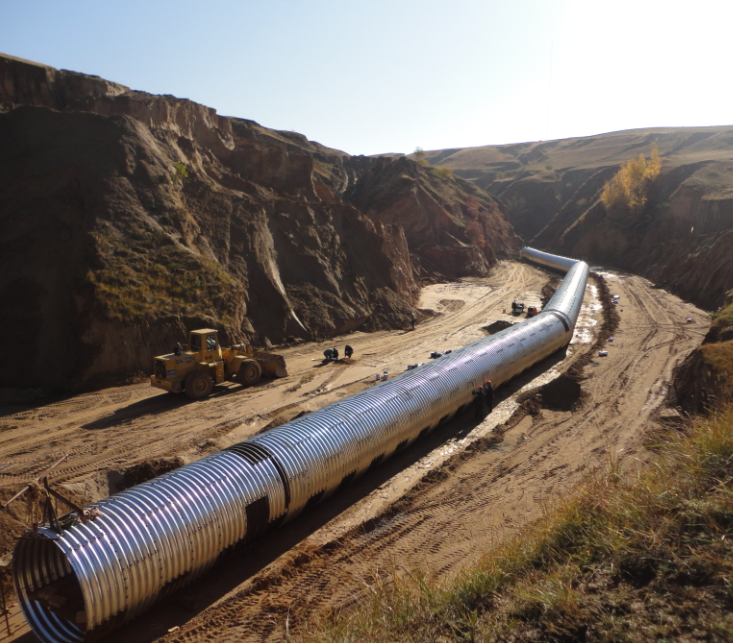
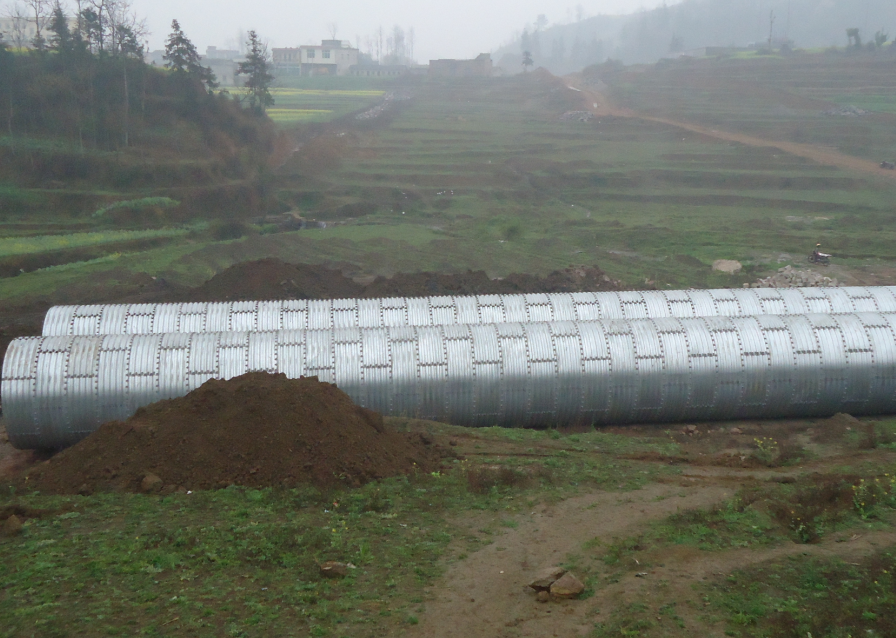
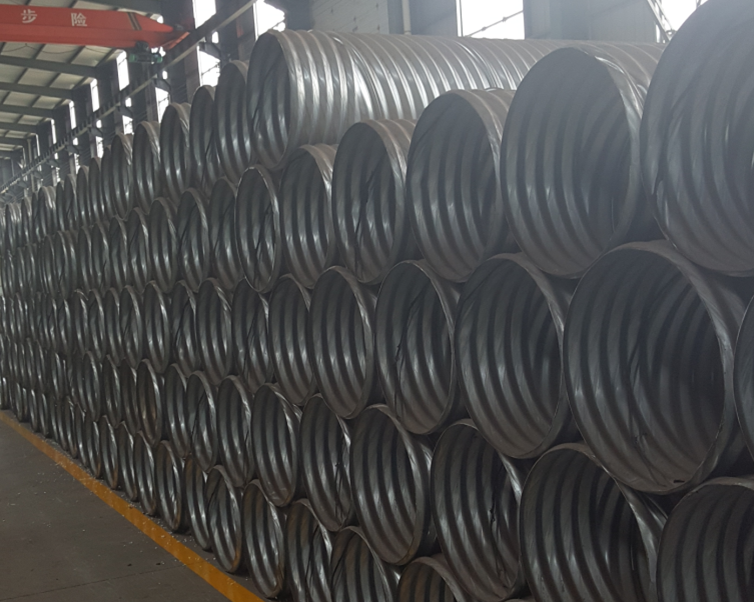
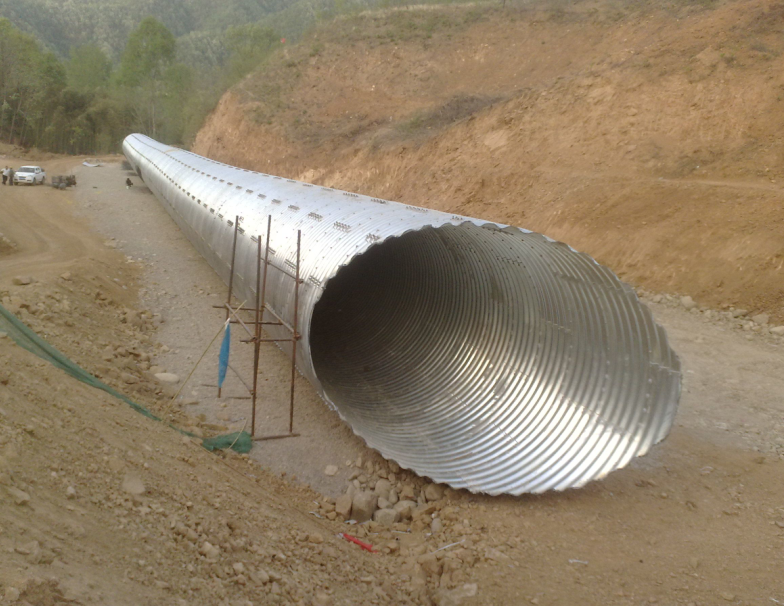
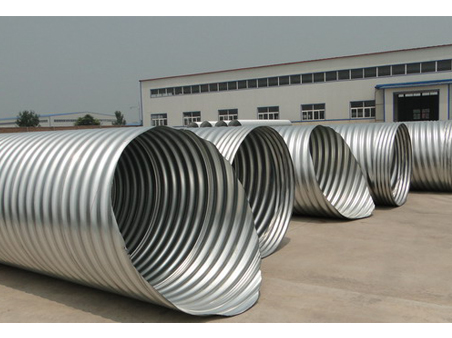

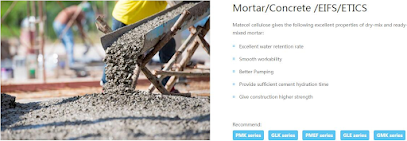
评论
发表评论